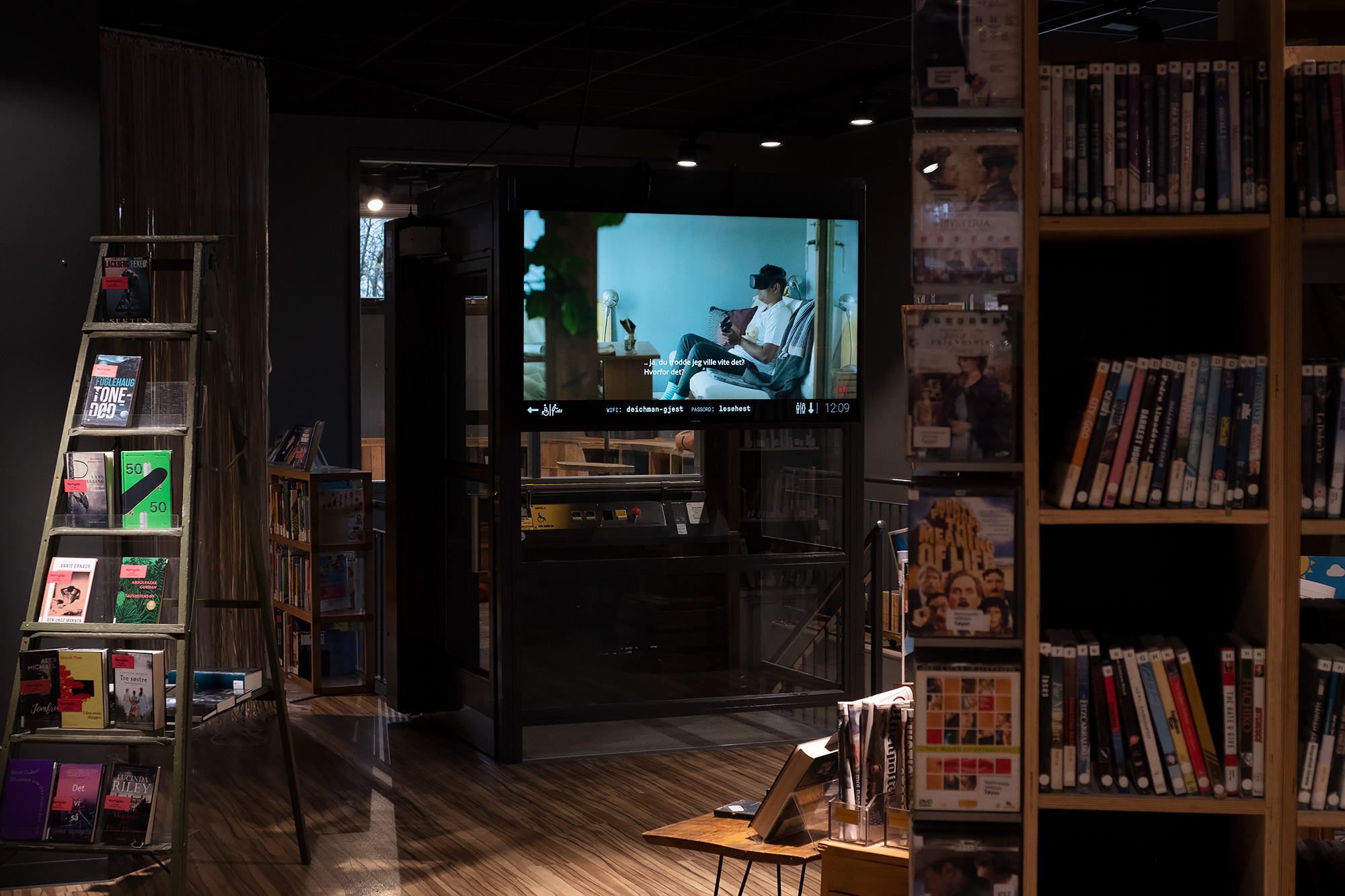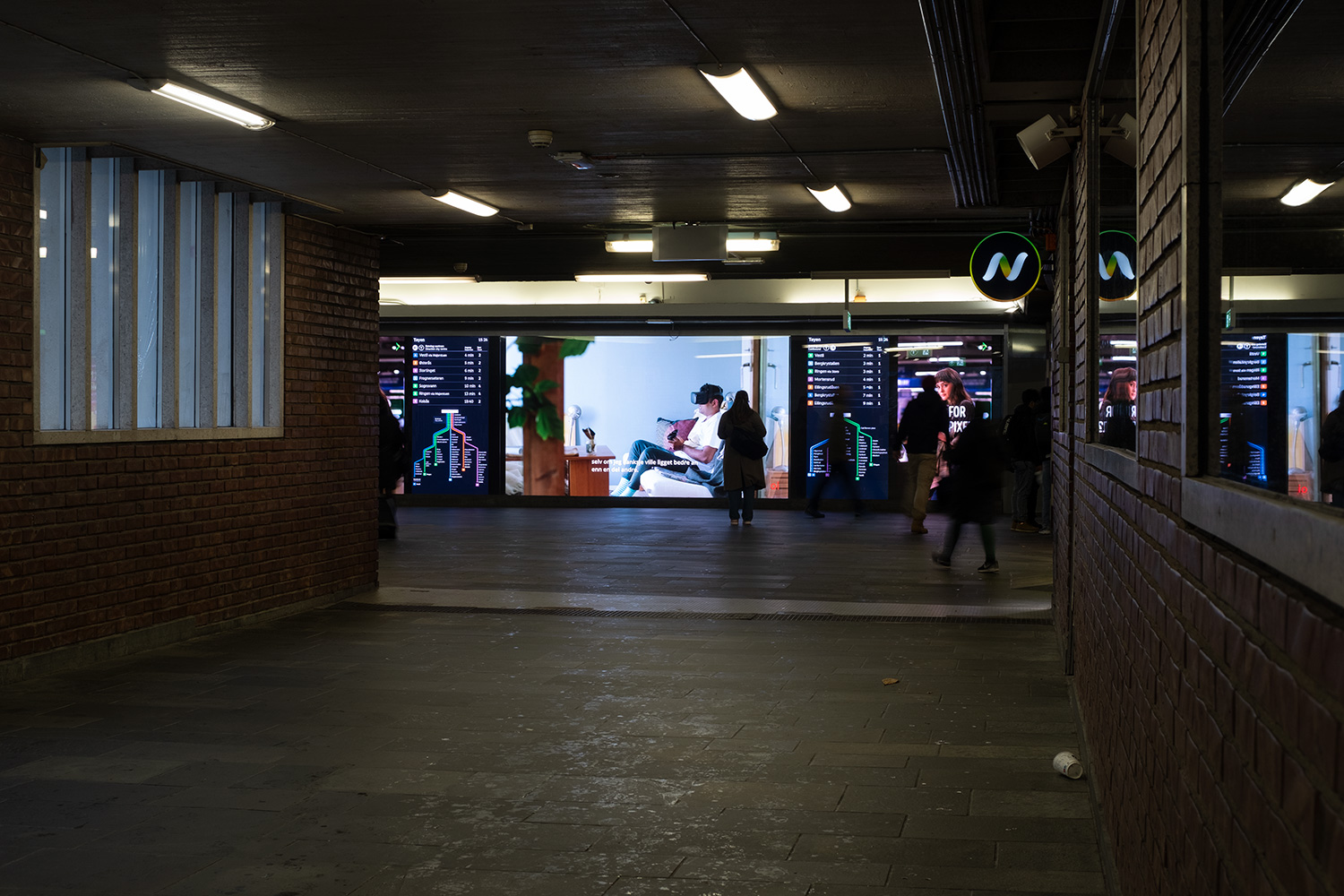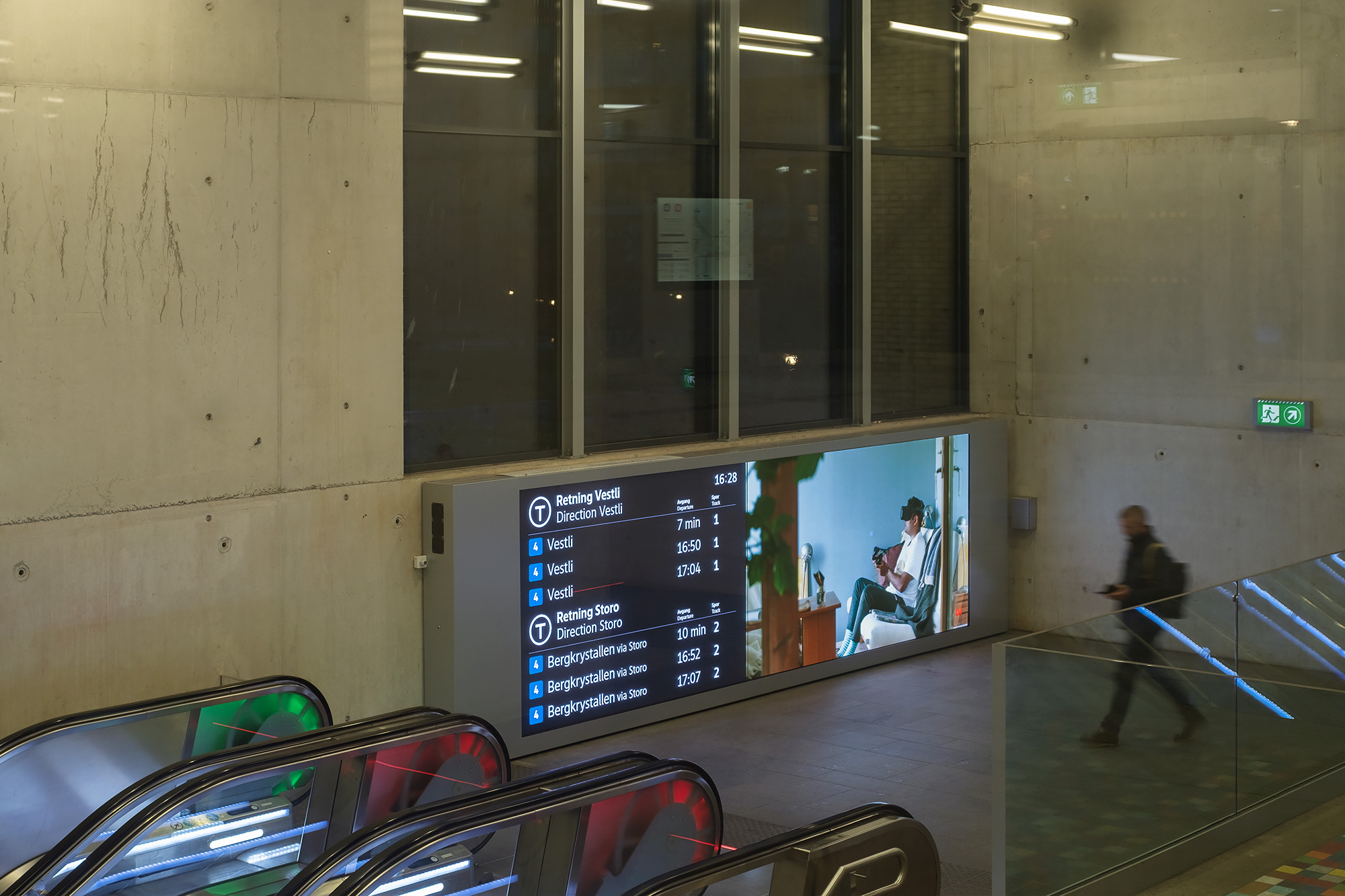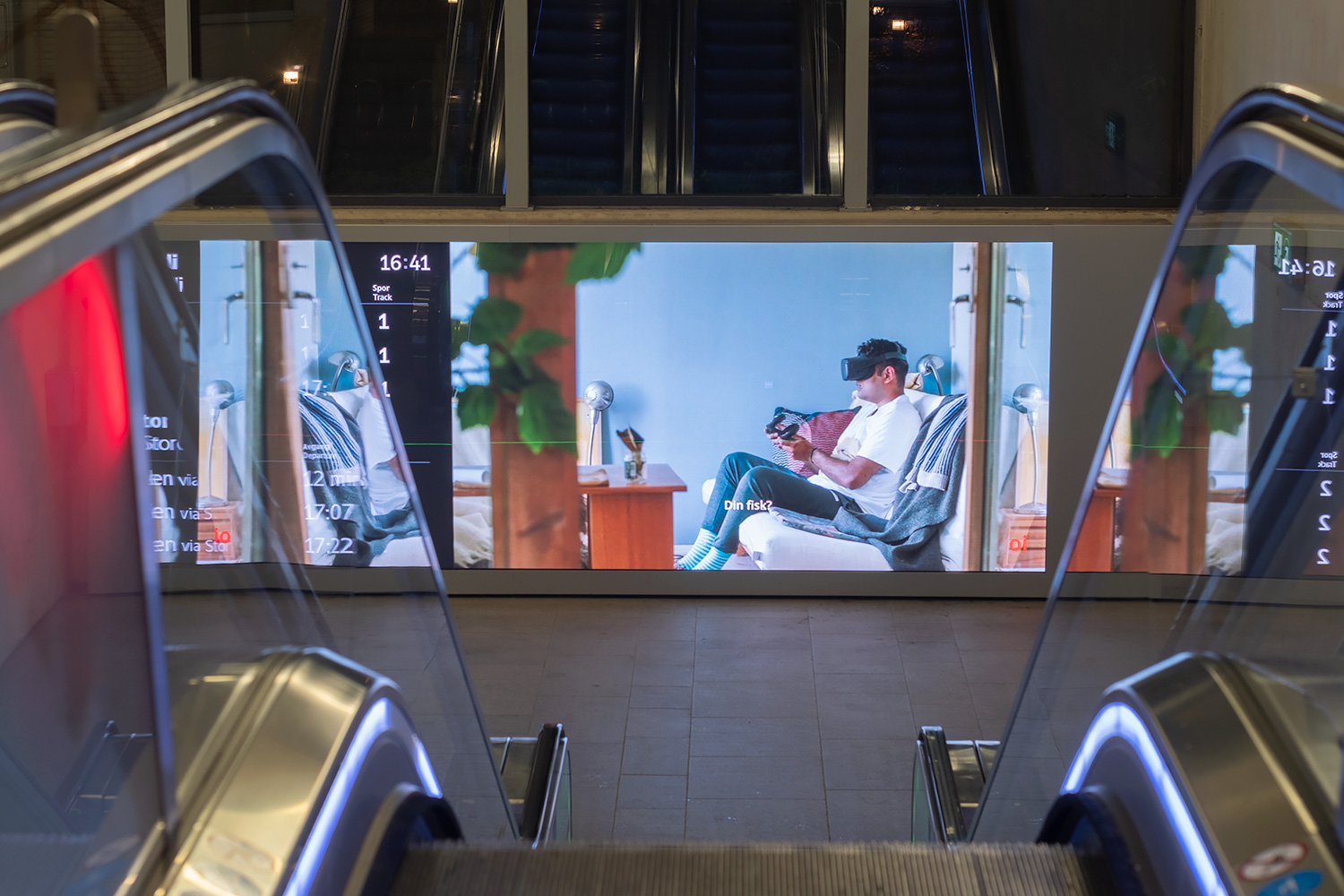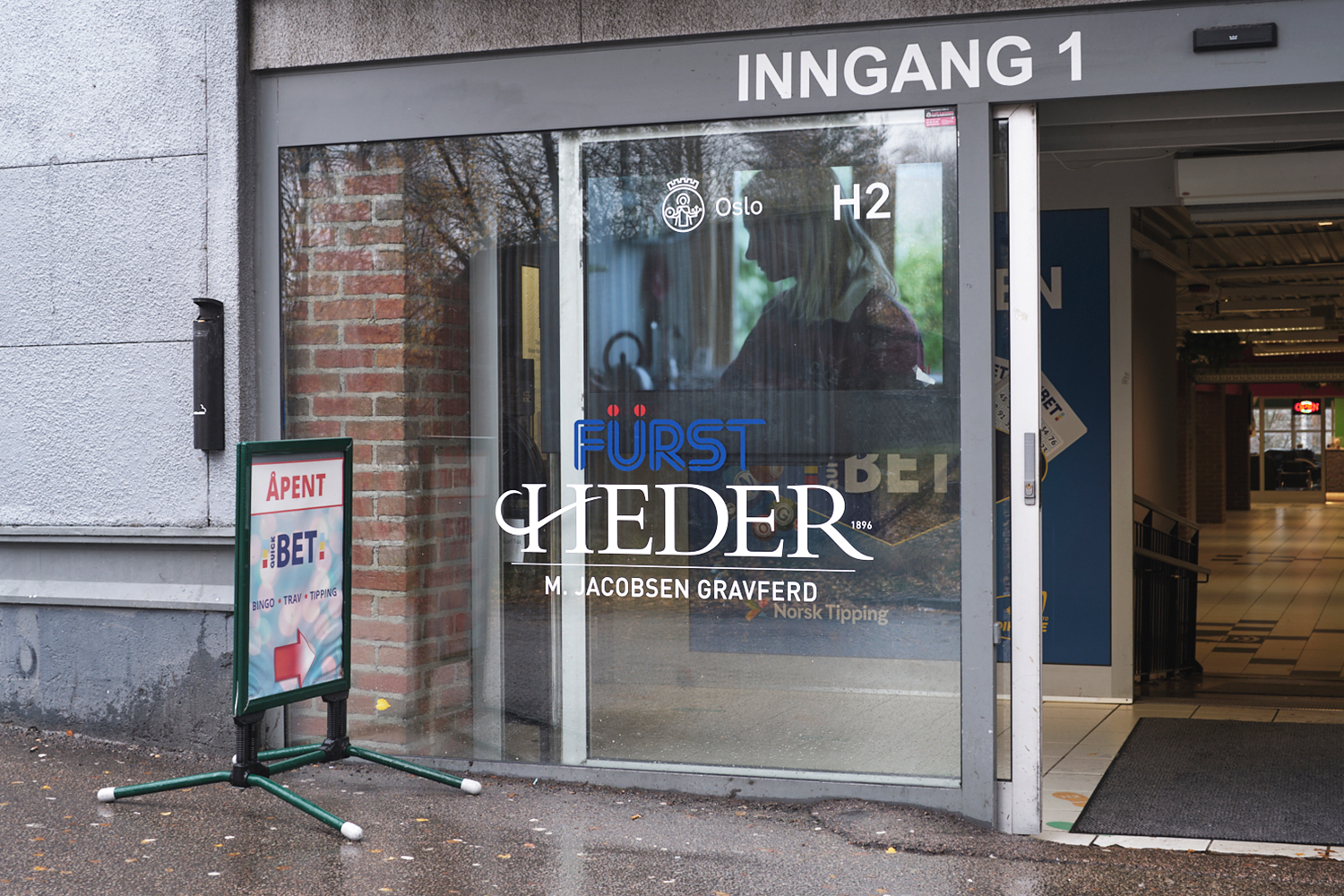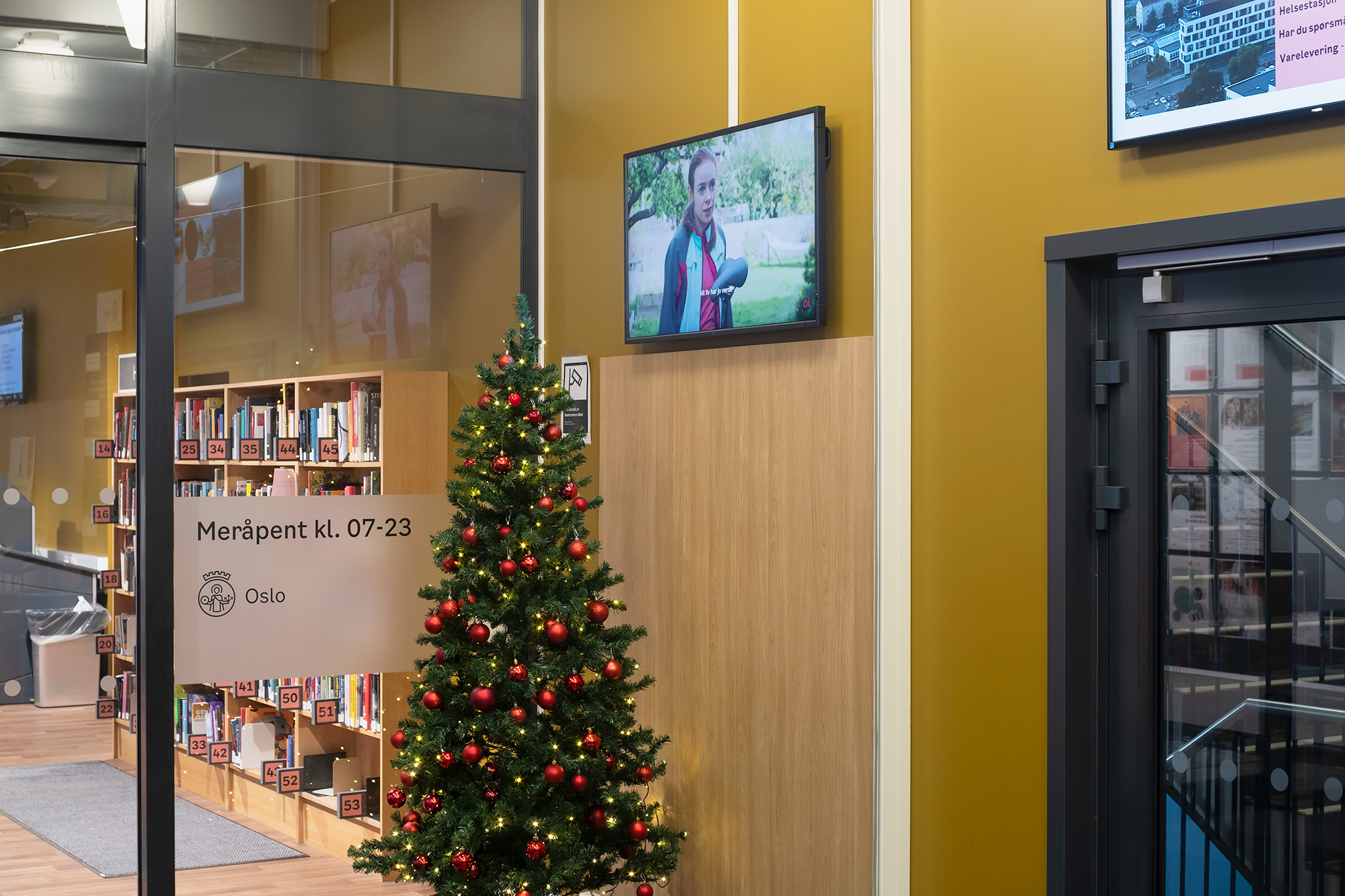Oslo 3; Living
Oslo 3; Living (2022) as installation in public spaces. Specially edited clips installed on screens in public spaces. 1-3 clips at the time over 6 weeks, at Tøyen subway station, Løren subway station, Deichman Tøyen, Deichman Lambertseter, Haugerud center and Furuset center. 2022
Various scenes and cuts from Oslo; Living (2022) will be presented in public spaces in Oslo week 43-46, 2022.
Locations:
Tøyen T-banestasjon (1 min cuts from each scene)
Løren T-banestasjon (1 min cuts from each scene)
Deichmanske bibliotek Tøyen (full scene)
Deichmanske bibliotek Lambertseter (full scene)
Haugerud senter (full scene)
Furuset senter (1 min cuts from each scene)
With Birgitte Larsen, Kjersti Dalseide, Manish Sharma, Khalid Mahmoud.
DOP Marte Vold
Oslo; Living (2022) is the 3rd chapter of Oslo: WORK, SPEECH, LIVING, SEXUALITIES, STRUGGLE (2019–2024), a perennial film- and exhibition project situated in urban public space. With the topics of work, speech, living, sexualities and struggle as starting points, material for one thematic chapter is filmed annually, which is presented in fragments as installations in various urban public spaces in Oslo. Each autonomous film deals with different crisis or deviations within contemporary urbanity, and will eventually become the foundation for a feature film in 2024. Using the city of Oslo as raw material to develop narratives told from under-represented perspectives in our society, the overarching project is an acute look at our present times in a Northern European urban setting.
Oslo; Living (2022) explores deviant and creative strategies that people use in their everyday life to make it meaningful, in an attempt at shaping a life that is livable. A livable life presupposes an unlivable life, understood as a life emptied of meaning, possibilities or passion. The unlivable life exists as a an abyss to the life we know, and also as a “driver” for things which surrounds and structures our everyday lifes, such as advertising, the media, or commercial urban planning that seeks to tell us how one should find one’s place in society — what one should desire. It is clear that there are also other conditions that make a life unlivable, a life without life, such as hunger, deprivation of liberty and extreme poverty — this also lies there as a doppelgänger of our privileged world. Yet a sense of the meaningless and the unfree creeps into our world, in the spaces or voids left between the desires with which we surround ourselves, and our inability to live up to them.
Regarding deviant everyday practices, there may be minimal deviations, almost imperceptible, but which cause you to use something just slightly incorrectly, against what it was designed for. Then there are clearly large deviations, which become a binary opposition to the surrounding society, and thus also reflect it.
These different types of deviations exist in people's everyday lives, but are not represented in the common narratives about our lives in the media or social media. Such deviant practices can be using a shopping centre for other purposes than it was designed, changing the meaning of a street through gatherings of people with particular interests or identities, or appropriating vacant areas in the city as a social space or simply to walk your dog. Meanwhile, such deviancy can also be exercised through creating a completely separate community or separate "family unit" that exists on its own terms, with its own rules for good and bad.
Oslo: WORK, SPEECH, LIVING, SEXUALITIES, STRUGGLE (2019–2025) was initiated as part of Oslobiennalen, but is now an independent project in collaboration with Filmbyrået Jack and Oslo Municipality, with support from KORO, Fond for Lyd og Bilde and Norsk Kulturfond.
Locations:
Tøyen T-banestasjon (1 min cuts from each scene)
Løren T-banestasjon (1 min cuts from each scene)
Deichmanske bibliotek Tøyen (full scene)
Deichmanske bibliotek Lambertseter (full scene)
Haugerud senter (full scene)
Furuset senter (1 min cuts from each scene)
With Birgitte Larsen, Kjersti Dalseide, Manish Sharma, Khalid Mahmoud.
DOP Marte Vold
Oslo; Living (2022) is the 3rd chapter of Oslo: WORK, SPEECH, LIVING, SEXUALITIES, STRUGGLE (2019–2024), a perennial film- and exhibition project situated in urban public space. With the topics of work, speech, living, sexualities and struggle as starting points, material for one thematic chapter is filmed annually, which is presented in fragments as installations in various urban public spaces in Oslo. Each autonomous film deals with different crisis or deviations within contemporary urbanity, and will eventually become the foundation for a feature film in 2024. Using the city of Oslo as raw material to develop narratives told from under-represented perspectives in our society, the overarching project is an acute look at our present times in a Northern European urban setting.
Oslo; Living (2022) explores deviant and creative strategies that people use in their everyday life to make it meaningful, in an attempt at shaping a life that is livable. A livable life presupposes an unlivable life, understood as a life emptied of meaning, possibilities or passion. The unlivable life exists as a an abyss to the life we know, and also as a “driver” for things which surrounds and structures our everyday lifes, such as advertising, the media, or commercial urban planning that seeks to tell us how one should find one’s place in society — what one should desire. It is clear that there are also other conditions that make a life unlivable, a life without life, such as hunger, deprivation of liberty and extreme poverty — this also lies there as a doppelgänger of our privileged world. Yet a sense of the meaningless and the unfree creeps into our world, in the spaces or voids left between the desires with which we surround ourselves, and our inability to live up to them.
Regarding deviant everyday practices, there may be minimal deviations, almost imperceptible, but which cause you to use something just slightly incorrectly, against what it was designed for. Then there are clearly large deviations, which become a binary opposition to the surrounding society, and thus also reflect it.
These different types of deviations exist in people's everyday lives, but are not represented in the common narratives about our lives in the media or social media. Such deviant practices can be using a shopping centre for other purposes than it was designed, changing the meaning of a street through gatherings of people with particular interests or identities, or appropriating vacant areas in the city as a social space or simply to walk your dog. Meanwhile, such deviancy can also be exercised through creating a completely separate community or separate "family unit" that exists on its own terms, with its own rules for good and bad.
Oslo: WORK, SPEECH, LIVING, SEXUALITIES, STRUGGLE (2019–2025) was initiated as part of Oslobiennalen, but is now an independent project in collaboration with Filmbyrået Jack and Oslo Municipality, with support from KORO, Fond for Lyd og Bilde and Norsk Kulturfond.
